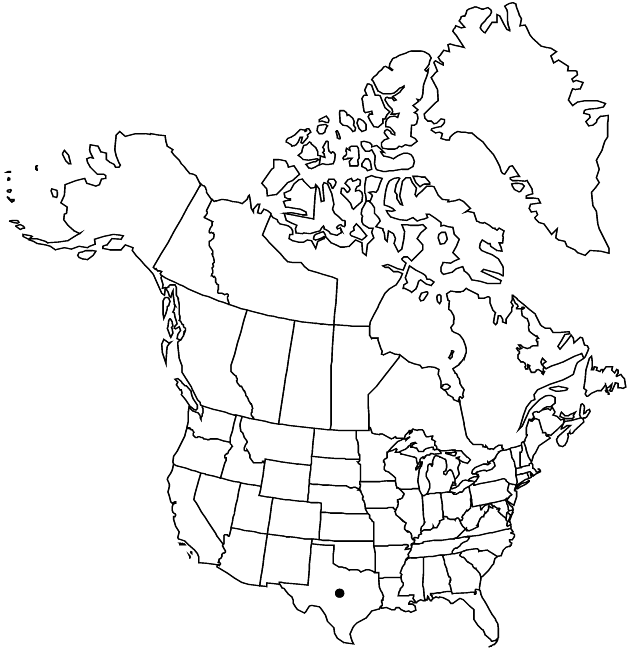Difference between revisions of "Tetraneuris linearifolia var. arenicola"
Sida 15: 237. 1992.
FNA>Volume Importer |
imported>Volume Importer |
||
| (One intermediate revision by the same user not shown) | |||
| Line 16: | Line 16: | ||
}}<!-- | }}<!-- | ||
| − | --><span class="statement" id="st-undefined" data-properties=""><b>Plants </b>21–50+ cm. <b>Stems</b> (1–)4–10, erect or ± decumbent, unbranched or branched distally. <b>Leaves</b> usually densely hairy, sparsely to moderately glanddotted, basal blades usually spatulate, usually with 2–6 teeth or lobes; | + | --><span class="statement" id="st-undefined" data-properties=""><b>Plants </b>21–50+ cm. <b>Stems</b> (1–)4–10, erect or ± decumbent, unbranched or branched distally. <b>Leaves</b> usually densely hairy, sparsely to moderately glanddotted, basal blades usually spatulate, usually with 2–6 teeth or lobes; proximal cauline blades usually oblanceolate, usually with 2(–6) teeth or lobes, mid blades usually oblanceolate, (2.5–)3.9–9.5(–16) mm wide. <b>Peduncles</b> (10–)13–22(–29) cm, densely hairy. <b>Involucres</b> 8–10 × 12–15 mm. <b>Outer</b> phyllaries 13–21, margins usually not scarious, abaxial faces densely hairy. <b>Ray</b> florets 14–25. <b>Cypselae</b> 1.9–2.6 mm, pappi of 5–8 non-aristate scales 1–1.7 mm. <b>2n</b> = 30.</span><!-- |
-->{{Treatment/Body | -->{{Treatment/Body | ||
| Line 46: | Line 46: | ||
|publication year=1992 | |publication year=1992 | ||
|special status= | |special status= | ||
| − | |source xml=https:// | + | |source xml=https://bitbucket.org/aafc-mbb/fna-data-curation/src/2e0870ddd59836b60bcf96646a41e87ea5a5943a/coarse_grained_fna_xml/V19-20-21/V21_1123.xml |
|tribe=Asteraceae tribe Heliantheae | |tribe=Asteraceae tribe Heliantheae | ||
|subtribe=Asteraceae (tribe Heliantheae) subtribe Gaillardiinae | |subtribe=Asteraceae (tribe Heliantheae) subtribe Gaillardiinae | ||
Latest revision as of 20:08, 5 November 2020
Plants 21–50+ cm. Stems (1–)4–10, erect or ± decumbent, unbranched or branched distally. Leaves usually densely hairy, sparsely to moderately glanddotted, basal blades usually spatulate, usually with 2–6 teeth or lobes; proximal cauline blades usually oblanceolate, usually with 2(–6) teeth or lobes, mid blades usually oblanceolate, (2.5–)3.9–9.5(–16) mm wide. Peduncles (10–)13–22(–29) cm, densely hairy. Involucres 8–10 × 12–15 mm. Outer phyllaries 13–21, margins usually not scarious, abaxial faces densely hairy. Ray florets 14–25. Cypselae 1.9–2.6 mm, pappi of 5–8 non-aristate scales 1–1.7 mm. 2n = 30.
Phenology: Flowering (Feb–)Mar–Apr(–Jun; also Dec).
Habitat: Roadsides and pastures
Elevation: 50–200 m
Discussion
Variety arenicola is known only from the vicinity of Brooks, Hidalgo, Jim Hogg, and Zapata counties. It grows in sand; var. linearifolia grows in limestone-derived soils.
Selected References
None.
